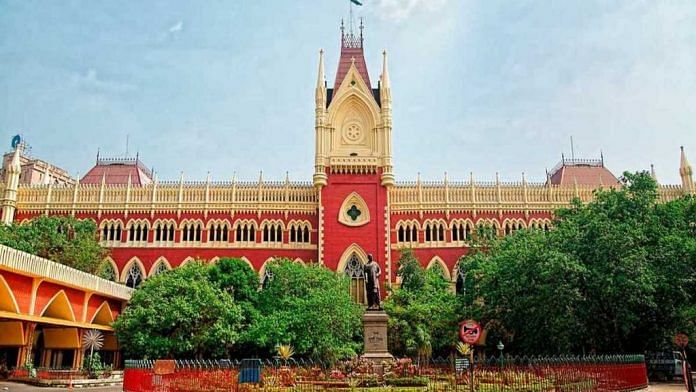New Delhi: In 2006, former Supreme Court judge U.C. Banerjee had submitted a probe report that ruled out any foul play in the February 2002 Sabarmati Express fire in Godhra, Gujarat, which left 58 karsevaks returning from Ayodhya dead and several injured.
Fourteen years later, the Narendra Modi-led central government is refusing to process the recommendation of the Supreme Court collegium to elevate Justice Banerjee’s son Amitesh Banerjee to the Calcutta High Court bench, ThePrint has learnt.
However, Banerjee’s isn’t the only name on hold — the government has not processed the names of four other lawyers cleared by the SC collegium on 24 July 2019.
Sources in the Supreme Court told ThePrint that there has been no official communication from the Modi government so far on whether it intends to process the names.
The Banerjee Commission report
In the aftermath of the Godhra incident, after which large-scale rioting took place in Gujarat, the state government then headed by Modi set up a commission under former Gujarat High Court judge K.G. Shah. However, after an uproar over the choice of judge, the government brought in former Supreme Court judge G.T. Nanavati.
In its first report, the Nanavati-Shah Commission concluded that fuel was thrown inside the coach carrying karsevaks, and then the train was attacked by a mob of Muslims. The report also exonerated the state government. But its findings attracted a lot of criticism from activists and leaders of parties opposing the BJP.
Also read: SC grants bail to 14 convicts of 2002 Gujarat riots, asks them to do spiritual, social work
After the UPA came to power at the Centre in 2004, railways minister Lalu Prasad Yadav constituted another inquiry commission, this one headed by Justice Banerjee, to investigate the incident.
In his first report, Justice Banerjee concluded that the fire was not caused by fuel thrown at the train, describing it as an accidental fire. The report had come as a setback to Modi’s Gujarat government, because it refuted the state’s theory that the fire was the result of a deliberate act, aimed at harming the karsevaks travelling in the train.
However, the Gujarat High Court declared the findings of the Banerjee Commission illegal, quashing the conclusions. It also dubbed the setting up of the commission as a “colourable exercise of power with mala fide intentions”.
‘He is his father’s son’
The Calcutta High Court collegium, on 17 December 2018, recommended the names of nine lawyers for elevation to judgeship. But the Supreme Court collegium selected only five of these names — Amitesh Banerjee, Jaytosh Majumdar, Raja Basu Chowdhury, Lapita Banerji and Sakya Sen — and remitted the others to the high court.
However, until now, Modi’s central government has not issued the warrants of appointment for any of the names, nor has it sent the names back for reconsideration.
Officially, the government remains tight-lipped about the reasons for not processing the names. However, sources told ThePrint that Amitesh Banerjee’s name is stuck “only because he is his father’s son”.
Problem of vacancies
In recent months, the Supreme Court, both on the judicial and administrative sides, has questioned the Modi government’s inaction on several names cleared by the Supreme Court collegium.
Late last year, a Supreme Court bench comprising Justices Sanjay Kishan Kaul and K.M. Joseph had come down heavily on the Centre for not filling vacancies in high courts. The bench had pointed out that 213 names recommended for appointment to high courts were still pending, and that several of them were kept on hold by the government even though they were reiterated by the collegium.
Also read: Godhra, Kashmir, northeast CAB unrest: can clampdowns on media visuals help curb violence?




We, the ordinary people of India have little or no knowledge of appointment of Judges and Chief justices of High courts and supreme courts in India. That we only have the idea that Supreme court has its way when it is face to face with Govt. We also hear Politicians lamenting delays in justice that they say are denied but here and in some other cases we learn that Govt. do have its way and Supreme court laments. Why Supreme court cannot enforce its recommendations is not known. Are members of collagium who are the senior most justices and short period to retire scared that enforcing would incur displeasure of the Govt. and that would affect their after retirement benefits particularly plum political postings in jeopardy. Or else why the Chief Justice of India cannot issue orders to make appointment in certain time bound frame and if it has certain reservations that too should be sent withing the same time frame. But the appointment could not be deferred more than a month? Is Supreme court a lame duck?
Blood line in appointments seems most important interesting it would be see who many have come down the family tree.
U.C.Benarjee deserves to be tried for judicial fraud and debarred. He is reason enough not to elevate his son to a position of responsibility.
Thankfully because of him and the Tehelka Magazine sting operation, we now know how the Modi government fabricated the facts of the Godhra train fire case.